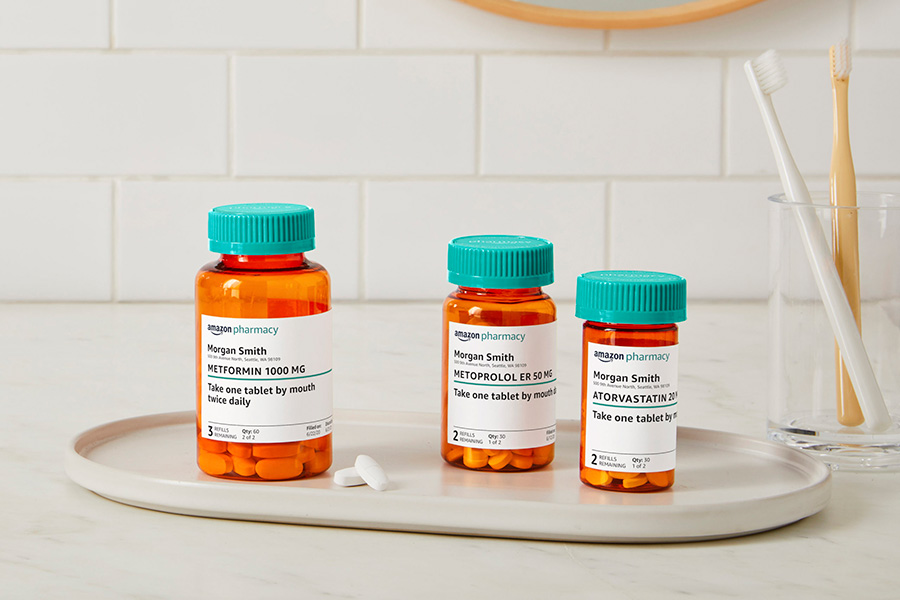2021 is barely one month old, and it’s already been quite an eventful year for Amazon.
In the first week of January, Amazon, Berkshire Hathaway and JPMorgan Chase announced they were shuttering the joint Haven venture, ending a multi-year project that aimed to disrupt the health care industry. Then earlier this week, the tech giant announced that founder and CEO Jeff Bezos was stepping down this year as CEO and handing off the role to Amazon Web Services (AWS) CEO Andy Jassy in July. Bezos will stay on as Executive Chairman.
In the past few years, Bezos hasn’t been shy about Amazon’s ambitions to grab a slice of the nearly $4 trillion health care market. Other than the Haven venture, Amazon acquired the online pharmacy service PillPack for $750 million; opened a number of health clinics with Crossover Health for its employees across the U.S; and made significant investments with health care enterprises, such as Beth Israel Deaconess in Boston, to test artificial intelligence tools via AWS.
Moreover, Alexa, Amazon’s voice-enabled service, was made HIPAA compliant and Amazon has worked with institutions like Providence in Renton, Washington to transmit protected health information for patients. The company also launched Amazon Care, a virtual health service, for its employees and in October of last year, acquired a company called Health Navigator, which provides technology and services to digital health companies.
When Haven was announced in 2018, Bezos acknowledged the company was going to face a challenge in “reducing health care’s burden on the economy while improving outcomes for employees and their families would be worth the effort. Success is going to require talented experts, a beginner’s mind, and a long-term orientation.”
Three years later, Haven closed and Bezos is stepping down as CEO. What does that mean for the future of Amazon’s health care plans? Experts expect the company to continue to make investments and start initiatives on the payer, provider, and consumer side. With Bezos continuing as Executive Chairman, the company is not likely to give up on its ambitions any time soon.
“Amazing is still licking its chops”
From the first announcement of Haven, Ian Morrison, health care futurist and author, was certain the venture didn’t have the scale to meaningfully disrupt the incumbent health care system. “They had a million lives collectively, which is less than 1 percent of the privately insured landscape. That’s the key rate limiting factor of any individual or small group of employers trying to make much of a difference,” Morrison says. But that doesn’t mean Amazon’s interests in health care should be completely disregarded.
“Haven has gone to heaven, but Amazon is still licking its chops. To ignore what Amazon could do independently is crazy. They have their eyes set on the 20 percent of the gross domestic product that goes through health care as a market opportunity, not just with their own employees. The punchline from [the downfall of Haven] is to watch Amazon, don’t watch Haven,” Morrison says.
David Blumenthal, MD, President of the Commonwealth Fund and former National Coordinator for Health IT in the Obama Administration, says Amazon’s ability to change the market for health care services through IT platforms doesn’t require the help of the other two companies. Blumenthal, who wrote an article in Harvard Business Review about the Haven collapse, told Health Evolution that in terms of market share within certain areas, Amazon’s grasp on Seattle was the only instance within the Haven arrangement where a company could force local suppliers to change behavior.
Some are optimistic to think that its presence in disrupting local markets could expand beyond Seattle. Array Advisors, a health care facility design and consulting firm, is certain Amazon will become a “comprehensive, digitized health care provider of the future.” The company predicted that Amazon will start an Amazon Prime for health care combining services offered by Amazon Care, the online pharmacy and prescription delivery side, Halo wearables, the neighborhood health clinics, and third-party software. Array’s Catherine Castillo and Neil Carpenter outlined the top 20 potential Amazon health care hotspots, including area need, economics, market willingness and existing footprint.










